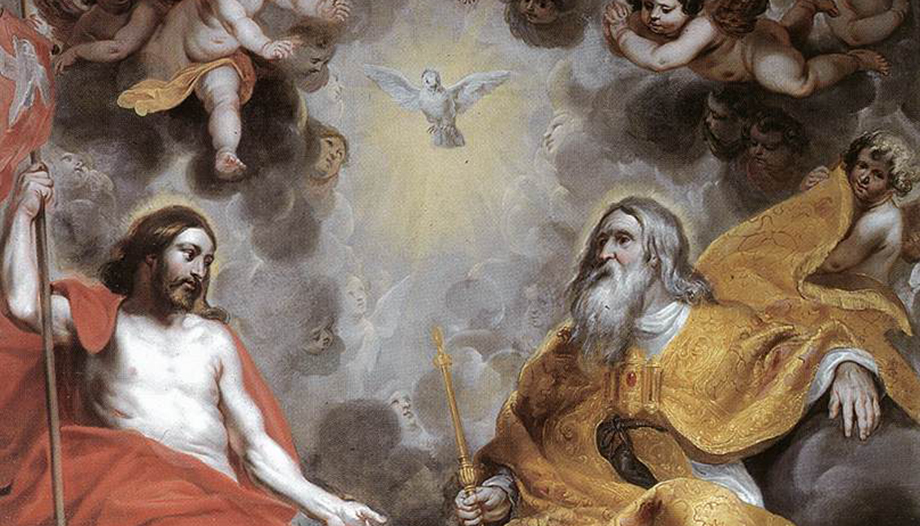On the day of the Trinity we read in the book of Proverbs the hymn in which divine Wisdom says that she was begotten from eternity, from the beginning of the earth, when there were no abysses, springs, hills or fields. Then we see her next to the creator, when she fixes the heavens, condenses the clouds and sets limits to the sea. As architect, as the joy of God whose delight it is to dwell with men. There are resonances of this passage in the Gospels and in Paul when they present Jesus as divine Wisdom: that is why, since Justin, the Christian tradition sees in this hymn a prefiguration of Christ.
In his letter to the Romans (5:1-5), Paul describes in an admirable synthesis the progress of the Christian life under the action of the Trinity. By faith we have been made righteous and are therefore at peace with the Father through the Son. Through the Son we also have access to God's grace, which gives us firm hope in the fulfillment of his plan. Paul adds a strong expression: "we glory" of this grace. But, even if we boast, we do not fall into the illusion that everything is going smoothly. We have tribulations, but even in them we glory, because of the experience that patience is born of tribulation, and thanks to patience the virtues become firmer, and thus, tested, they make us recover the hope that we already received as a gift, at the beginning, with faith. A stronger hope that overcomes the temptation to be "disappointed", because it is placed in God and not in earthly things, and because we have received the love of God, so that the hope has already been fulfilled: the love of God dwells in us thanks to the Holy Spirit that has been given to us.
Paul's words invite us to examine the history of our life and to recognize the action of the divine persons and to follow it with docility, in order to facilitate the dynamic that Paul describes.
Jesus, in the passage from John, reveals to us the profound unity of the three persons. He has always told us what he has heard from the Father, and so does the Holy Spirit: he takes from Jesus, and what is of the Son is also of the Father, and announces it to us. The work of salvation history is still open and the Spirit will carry it forward. He will help the Church to face each future event in the light of Revelation and with the grace of the Redemption. Because Jesus knows our condition, he knows that we cannot "load" with the things he would like to tell us. With the same verb the evangelist describes Jesus "loading" the cross (19:17). The Trinity progressively prepares us, as Paul explains to the Romans, to be able to "carry" our cross and follow Jesus. Personally and as a Church.
Homily on the readings of the Holy Trinity
The priest Luis Herrera Campo offers its nanomiliaa small one-minute reflection for these readings.









